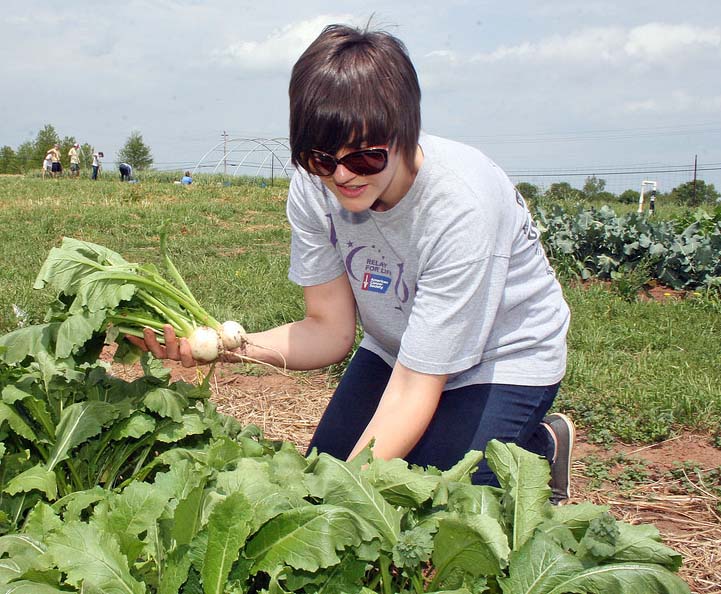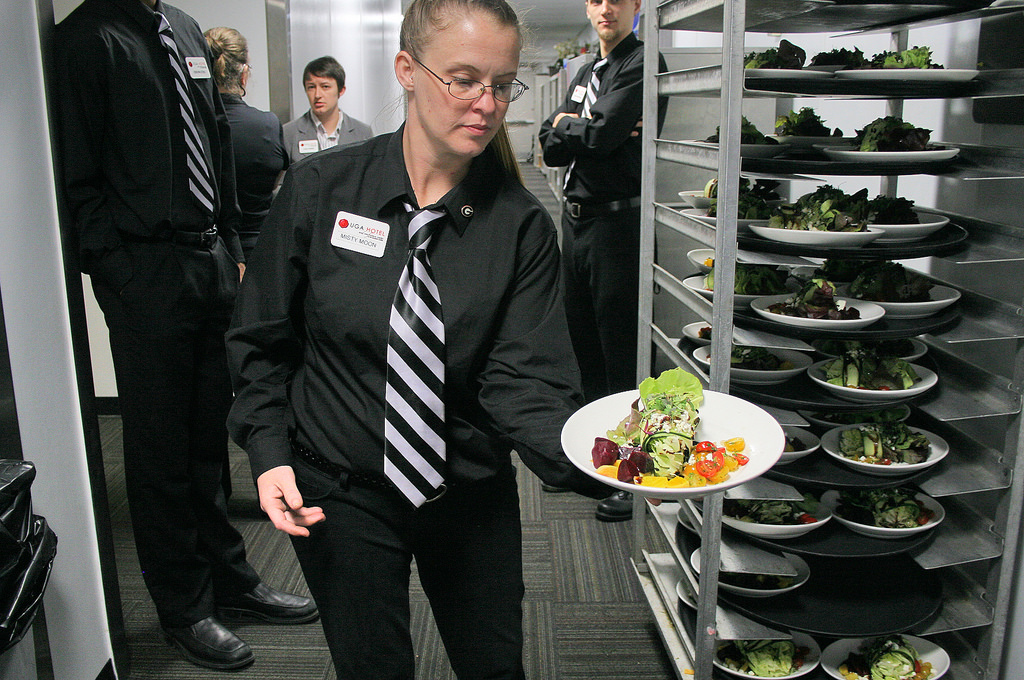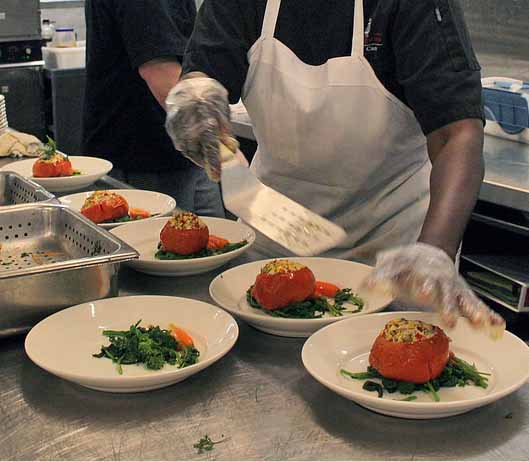Homegrown vegetables always taste better, but they’re even tastier when they’re prepared by the hands of a professional chef.
To celebrate the end of the semester, Chef Rob Harrison — of the University of Georgia’s Georgia Center Hotel and Conference Center — turned vegetables grown by UGA’s Organic Agricultural Systems students into delectable plates of food, worthy of any foodie’s Twitter feed, Facebook post or Instagram account.
“We tried to source every thing we possibly could locally, if not from you guys,” Harrison told the UGA class when they gathered at the end of the semester in a dining room at the Georgia Center. “I can’t say it all came from Georgia, but in a perfect world it would.”
The menu included edible flowers, broccoli rabe, carrots, shitake mushrooms and salad greens the students grew on plots and in greenhouses.
“A lot of the students came to this class with very different goals,” said Suzanne O’Connell, who joined UGA’s team of sustainable and organic faculty in January. “Some wanted to find a new way to support their families' farm, to find new marketing opportunities. Others really dream of starting their own food business, whether that be a farming operation or something in the kitchen. … They all wanted to understand the science and the reasoning behind organic production, and I think we covered that this semester.”
O’Connell’s class, Horticulture 3125, is one of the core courses in the UGA Certificate in Organic Agriculture program. Most of her students are horticulture majors, pursuing certificates in organic agriculture, but others come from different fields of study. The certificate program is open to students from across the university.
O’Connell’s covers basic organic farming practices, the specifics of soil and pest management, how to extend the growing season and the marketing of products. Students raise seedlings in greenhouses before moving them into fields.
“It was really nice to get to see the entire cycle,” said Lauren Mueller, a third year UGA student from Forsyth County majoring in horticulture. “We started these crops from seed, moved them into the field, harvested them and then had a great lunch. … A lot of the students didn’t know how to cook some of the vegetables that we raised, so it was really nice to have someone show us what could be done with them.”
More and more often, marketing organic produce means growing directly for local restaurants and markets. Working directly with a chef like Harrison, gives students valuable experience in growing with a restaurant’s menu in mind.
“It was a great way to integrate real-world issues and generate excitement that complemented other aspects of the class,” O’Connell said. “Students had to select seasonally appropriate crops. They had to time planting dates with desired harvest dates for the lunch. They had to manage greenhouse and field situations with organic methods and achieve high quality produce.”
Back at the Georgia Center, Harrsion would like to use more UGA-grown or locally grown meat and produce, especially in the center’s more elegant Savannah Room. Students from the UGA organic agriculture program have supplied chefs at the Georgia Center with produce from their farms in the past, but O’Connell hopes to make it a more regular occurrence.
Harrison came to UGA in October with a mission to revamp the Georgia Center’s menus to include more scratch-made dishes, wanting to have an abundance of fresh vegetables to work with and to cook for smaller groups.
“Chef Harrison did an incredible job highlighting (the students’) crops. I hope this becomes an annual event for the class and opens the door for more collaborations and local food sourcing,” she said.
Currently, UGA students in the class can personally use the produce they grow or give it to friends, family members and community outreach groups — like UGA’s Campus Kitchen. Peter Hartel, a UGA soil scientist who helped start the certificate program before retiring in 2011, sponsored this semester’s luncheon. He taught the first organic production class and still supports the program.
For more information about the UGA College of Agricultural and Environmental Sciences’ Certificate Program in Organic Agriculture, visit organic.uga.edu. For more photos of O'Connell's organic production class visit tinyurl.com/hort3125










